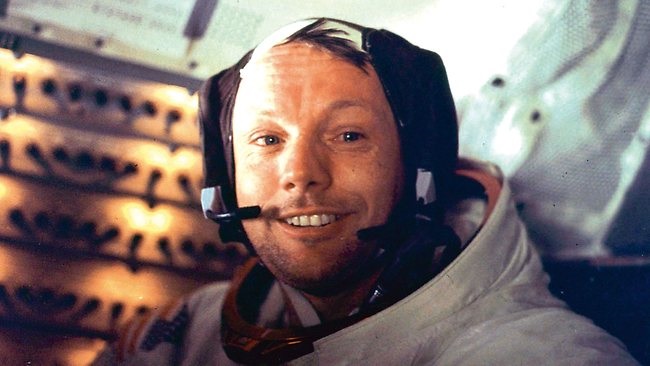On August 25, 2012, the world lost a truly great man: Neil Armstrong. The first man to walk on the moon, Armstrong inspired a nation--and generations--with the hope and excitement of space exploration.
Born August 5, 1930 in Wapakoneta, Ohio, Armstrong discovered his love for flight very early. By the age of 16, he'd already earned his student license. When he began at Purdue University, it was to pursue a degree in aeronautical engineering under a full scholarship from the US Navy. However, when the Korean War broke out, Armstrong's education was interrupted by the call of duty. He flew 78 combat missions during the Korean War and returned to school in 1952.

After completing his degree, Armstrong jointed the National Advisory Committee for Aeronautics (NACA), which would later be renamed the National Aeronautics and Space Administration (NASA). His roles included engineer and test pilot; Armstong was a test pilot for several high-speed aircraft, including the X-15, which travels over 4,000 miles per hour.
Armstrong joined the space program and relocated his family to Houston, Texas. Armstrong was the command pilot for his very first mission, the Gemini VIII. During the mission, Armstrong and colleague David Scott successfully docked their vehicle with the Gemini Agena, the first docking of two vehicles in space. The mission was cut short due to technical problems, and the pair landed in the Pacific less than 11 hours after the mission began.
Armstrong again served as commander in 1969, when he led the first expedition to the moon. Accompanied by Edwin E "Buzz" Aldrin and Michael Collins, Armstrong launched on July 16, 1969. Four days later they reached the moon, and at 10:56 pm on July 20, 1969 Armstrong took the first steps from the lunar module. Armstrong and Aldrin spent over two hours on the surface of the moon, collecting samples and taking pictures. The mission concluded on July 24, 1969 when the module landed safely in the Pacific Ocean.
Armstrong, Aldrin, and Collins came home to a true hero's welcome. Their accomplishment represented not only an incredible feat of science, but also a pivotal achievement in the United States' "Space Race" with the USSR. Armstrong received multiple accolades, including the Congressional Space Medal of Honor and the Medal of Freedom.
Armstrong's involvement with NASA stretched long past these early missions. He was deputy associate administrator until 1971, when he joined the faculty at the University of Cincinatti. After eight years as a professor of aeronautical engineering, Armstrong went on to serve as the chairman for Computing Technologies for Aviation, Inc from 1982 to 1992. Armstrong again stepped into an important role in the US space program after the Challenger accident in 1986. He served as the vice chairman for the committee that investigated the crash. Armstrong always remained dedicated to his field, speaking out in 2010 regarding his concern with changes to the national space program, reminding us of the incredible value of space exploration.
Though Armstrong mostly stayed out of the public eye, in 2005 he did grant a rare interview to 60 Minutes.









